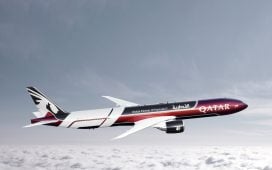Neel Pandya, Chief Executive Officer, EMEA & APAC at Pixis
From developing technology-infused cities to empowering people in new ways to achieve more across sectors like education, agriculture, communications, and so on, the Middle East and North African (MENA) region is experiencing an AI-powered marketing revolution.
As an influx of global brands continues to grow and the population gets more diverse, AI in MENA is emerging as the linchpin of cutting-edge strategies, driving campaigns tailored for the local culture and the newly migrated expats, ensuring efficiencies and revenues are accelerated at an unprecedented pa
To continue reading this article you need to be registered with Campaign. Registration is free and only takes a minute. Register Now or sign in below if you already have an account.









